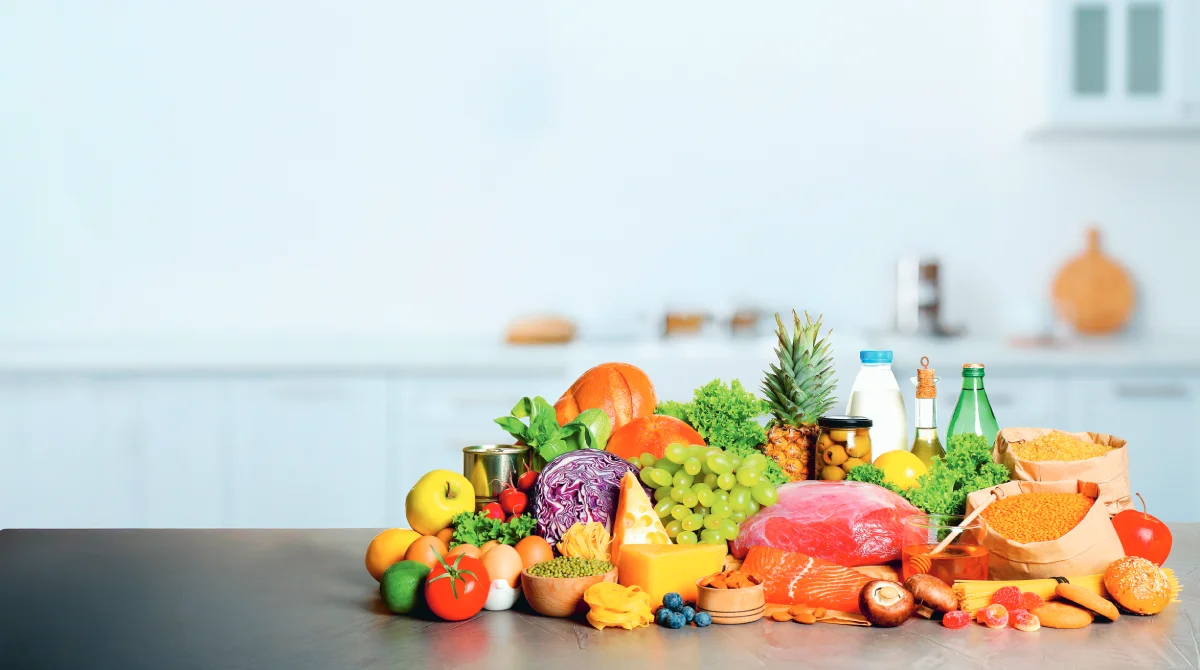News & Articles

Nutrition Tips for Cancer Recovery & Strength

The right foods can strengthen the body, improve energy and support healing after cancer treatment.
CANCER AND ITS TREATMENTS CAN TAKE A MENTAL AND PHYSICAL TOLL ON THE BODY. As you complete the final cycle of chemotherapy or treatment, eating well becomes essential to help you regain strength, rebuild muscle tone and feel better overall.
During treatment, some common side effects include a decreased iron level, which can lead to fatigue. Additionally, a lower white blood cell count can weaken the immune function and leave the body more vulnerable to infections.
Good nutrition is, therefore, vital for cancer patients, as eating the right foods can strengthen immunity, replenish energy levels and promote healing.
Here are some tips to help cancer patients build a recovery-focused diet to better navigate treatment and support their healing journey.
NUTRIENT-DENSE FOODS TO SUPPORT IMMUNITY
A strong immune system plays a key role in helping cancer patients recover effectively. Incorporating the following foods into your diet can help bolster your body's defences:
Immune-boosting fruits and vegetables
Packed with essential vitamins and antioxidants, fruits and vegetables fight inflammation and enhance immunity.
What to eat:
- Citrus fruits like oranges and lemons, as well as kiwifruit, for vitamin C.
- Berries such as blueberries and strawberries for antioxidants.
- Dark leafy greens like spinach and kale for immune-supporting nutrients.
Tip: If chewing is difficult, blend fruits into smoothies or steam vegetables for softer textures.
Protein-rich foods for iron, strength and repair
Protein is essential for tissue repair and recovery, especially after treatments like chemotherapy. Protein-rich foods like meat can also help improve iron levels.
What to eat:
- Lean sources like chicken, fish, eggs, tofu and beans.
- Soft options like scrambled eggs or poached fish for easier digestion.
- If you adopt a vegetarian diet, including legumes is a good way to increase you protein and iron levels.
Tip: Incorporate both animal and plant-based protein such as legumes into every meal to maintain muscle mass and energy levels.
Probiotic and prebiotic foods for gut health
Gut health is crucial for a strong immune system. Probiotics introduce beneficial bacteria, while prebiotics feed these bacteria.
What to eat:
- Probiotics: yoghurt, sauerkraut and kimchi.
- Prebiotics: bananas, garlic and asparagus.
Tip: Choose plain yoghurt without added sugar for the best nutritional benefit.
Omega-3 fats to reduce inflammation
Healthy fats play a role in reducing inflammation and supporting recovery.
What to Eat: Salmon, mackerel, walnuts, flaxseeds and chia seeds.
Tip: Sprinkle some chia seeds over yoghurt or cooked oats for a quick omega-3 boost.
Hydration for healing
Staying hydrated helps combat dry mouth, constipation and fatigue caused by treatment.
What to eat and drink: Water, herbal or non-caffeinated floral teas, clear broths and hydrating fruits like watermelon.
Tip: Take small sips of water throughout the day if drinking large amounts feels overwhelming.
PERSONALISED GUIDANCE FOR BETTER NUTRITION
Every cancer patient's nutritional needs are unique. Consulting a dietitian can help create a personalised diet plan tailored to individual treatment plans and side effects. This ensures patients get the nutrients they need while navigating challenges post-treatment.
| POSTED IN | Nutrition |
| TAGS | cancer diet & nutrition, common side effects of cancer treatment, healthy food, healthy food & cooking, healthy lifestyle |
| PUBLISHED | 01 February 2025 |
